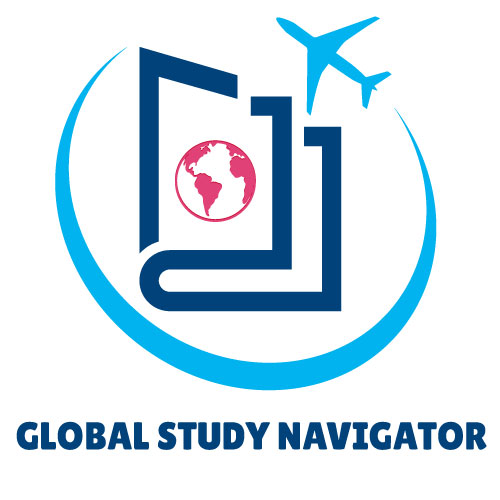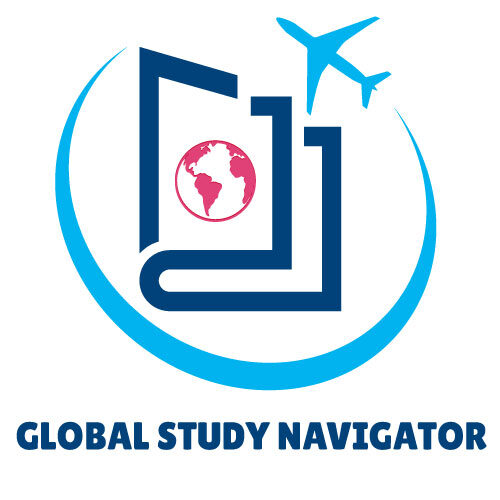Study In USA
Imagine getting a top-notch degree from a USA university and confidently starting your dream
Scholarship
Work Rights
Quick VISA

Unveiling the American Dream: A Guide to Studying in the USA for International Students
Are you dreaming of studying in the USA? It’s more than just a dream—it’s a gateway to endless possibilities.
With top-notch universities, diverse programs, and a focus on innovation, the USA beckons international students with open arms.
From high-quality education to post-graduation opportunities, this guide will unveil why studying in the USA is your ticket to academic success and a promising future. So, why are we still waiting? Let’s start.
Why Study in USA?
If you ask me why studying in the USA is an irresistible choice? I would say with top-tier universities, diverse programs, and a focus on innovation, the US offers a gateway to quality education and endless career opportunities. To know more about what you will gain by studying in the USA then, you can take a quick look at the below section and learn why the USA is the perfect destination for your academic journey! Certainly! Let’s explore why studying in the USA is an excellent choice
High-Quality Education
The United States boasts some of the top universities in the world, renowned for their academic excellence and rigorous standards.
In the latest QS World University Rankings, over 200 US institutions were featured, with 27 of them ranking in the top 100 globally.
US institutions are really good at a lot of different subjects, no matter what you’re interested in. For instance:
- In economics, seven US universities are among the top 10, with Harvard University ranked as the best university in the world.
- For life sciences, Harvard takes the top spot for medicine, and the University of Pennsylvania is ranked as the best university for nursing.
- Whether you’re on the East Coast or the West Coast, rest assured that a high-quality of education awaits you.
Diverse Range of Programs
- US universities offer a vast variety of programs across different fields. From liberal arts to cutting-edge technology, you’ll find options to match your interests.
- Whether you’re passionate about business, engineering, arts, or health sciences, there’s a program tailored for you.
- The flexibility to explore diverse subjects allows students to broaden their horizons and gain a well-rounded education.
Strong Focus on Research and Innovation
- The US is a hub for groundbreaking research and innovation. Universities collaborate with industry leaders, government agencies, and research institutes.
- For life sciences, Harvard takes the top spot for medicine, and the University of Pennsylvania is rankAs a student, you’ll have access to state-of-the-art labs, cutting-edge facilities, and renowned faculty members.ed as the best university for nursing.
- Whether you’re pursuing a bachelor’s, master’s, or doctoral degree, research opportunities abound.
Post-Graduation Opportunities
- After graduation, the US offers a plethora of career prospects. Many international students choose to stay and work in the country.
- Key cities like Boston (home to MIT and Harvard) provide excellent employment opportunities.
- Sectors such as trade, manufacturing, biotechnology, and life sciences thrive, offering diverse career paths.
- If you’re inclined toward technology, consider Austin, Texas (nicknamed “Silicon Hills”), which hosts major tech firms like IBM, Amazon, Dell, and Tesla.
- The US job market values internationally respected degrees, making it an attractive destination for post-graduation employment.
Requirements for Undergraduate and Postgraduate Studies in USA
Now, let’s take a look at the admission requirements for both undergraduate and postgraduate studies in the USA
Undergraduate Admissions Requirements
Academic Qualifications
- To be eligible for undergraduate programs, you typically need a high school diploma or an equivalent qualification.
- GPA (Grade Point Average): While specific requirements vary by university, a competitive GPA is important. For this reason, you’ve to aim for a GPA of 3.0 or higher (on a 4.0 scale) at least.
- Transcripts: Submit your high school transcripts to demonstrate your academic performance.
Standardized Test Scores
- SAT/ACT: Many US universities require either the SAT or ACT scores for undergraduate admissions. These tests assess your readiness for college.
- Application Deadlines: Be aware of application deadlines, as they vary across institutions.
English Language Proficiency
- If English is not your first language, you’ll need to demonstrate proficiency through tests like TOEFL (Test of English as a Foreign Language) or IELTS (International English Language Testing System).
- Each university sets its own minimum score requirements for these tests.
Postgraduate Admissions Requirements
Academic Qualifications
- For postgraduate coursework programs, you’ll generally need a Bachelor’s degree or an equivalent qualification from an approved institution.
- Some graduate certificates and diplomas may also serve as qualifying work for entry to a Master’s program.
Standardized Test Scores
- GRE/GMAT: Depending on your field of study, you might need to take the GRE (Graduate Record Examination) or GMAT (Graduate Management Admission Test).
- These tests assess your readiness for advanced studies.
English Language Proficiency
- Similar to undergraduate requirements, you’ll need to prove your English language proficiency through tests like TOEFL iBT or IELTS.
- Check the specific score requirements set by each university.
Financial Aid Options for International Students
While international students are not eligible for US federal aid (such as federal student loans), there are other avenues to explore
- School Loans: Some universities offer loans to international students. Contact your academic advisor or the financial aid office at your chosen school.
- Private Loans: Private lenders may provide loans to international students. Check with your school’s international student services or financial aid office.
- International Education Financial Aid (IEFA): IEFA partners with leading providers to offer student loan programs for education abroad. Visit their website for eligibility details and application information.
Financial Considerations
Here is a simple breakdown of financial considerations for studying in the United States
Cost of Tuition at US Universities
As of the academic year 2023-2024, the average undergraduate tuition and fees for US Top 100 Colleges are approximately
- State Residents: $14,192
- Out-of-State Students: $50,668
- Notably, Columbia University in the City of New York has the highest undergraduate tuition and fees at $69,045, while Brigham Young University offers the lowest rates at $6,496.
For graduate programs, the average graduate tuition and fees are around
- State Residents: $16,207
- Out-of-State Students: $39,656
- Keep in mind that these figures can vary based on the specific university and program you choose.


Living Expenses in the US
The cost of living in the US can be substantial, especially in major cities. Here, take a look at the average monthly expenses
Rent & Utilities
- 1-bedroom apartment in the city center: Around $1,611
- 3-bedroom apartment in the city center: Approximately $2,861
Food
- Monthly grocery expenses for one person: About $618
Transportation
- Local transport ticket: Around $2.38
- Monthly public transport pass: Approximately $71.80
Other Expenses
- Internet plan (50 Mbps+): About $67
- Eating out (lunch menu): Around $18.40
- Entertainment (cinema ticket): Approximately $13.90
- Please, remember that these costs can vary based on location and personal lifestyle choices.

Bank Statements & Financial Proof
Student visa applications require proof that you (or your sponsor) have enough money to cover your study expenses in the US. This shows you can financially support yourself throughout your program.
What to Show?
- Bank Statements: Recent bank statements (past 6 months) displaying sufficient funds for tuition, living costs, and travel.
- Financial Aid Letters: If you're receiving scholarships or grants, include official documentation.
- Sponsor's Documents: If someone is sponsoring your studies, provide their bank statements and a sponsor letter confirming their financial support.
Tip: Contact your desired university for specific financial documentation requirements.

The Immigration Process
F-1 Visa: Your Key to Studying in the US
The F-1 visa is the most common student visa for international students in the US. It allows you to enroll in a full-time course of study at a SEVP-approved school.
Get Accepted
- Apply and gain acceptance from a SEVP-approved US university.
Receive Form I-20
- Once accepted, your school will issue you a Form I-20, a vital document for your visa application.
Pay SEVIS Fee
- Settle the SEVIS fee of $350 (a mandatory cost for student visa processing.)
Complete Form DS-160
- This online form captures your visa application details.
Schedule Visa Interview
- Attend a visa interview at a US embassy or consulate in your home country.
Prepare Documents
- Gather all required documents like your passport, Form I-20, financial proof, and proof of English proficiency.
Pre-Departure Checklist: Ticking Off Your To-Dos
Before jetting off to the US, ensure you’ve completed these crucial tasks
- Book Accommodation: Secure housing arrangements (dorm, apartment) near your university.
- Health Insurance: Obtain health insurance to cover any medical needs during your stay.
- Open a Bank Account (Optional): Consider opening a US bank account for easier financial management.
- Research Arrival Procedures: Familiarize yourself with US immigration procedures upon arrival.
Final Thoughts
Excited about studying in New Zealand? Remember, we’re here to make your journey smooth and stress-free! From understanding visa requirements to organizing your finances, we’ve got you covered every step of the way.
Don’t hesitate to reach out for expert guidance and turn your dream of studying abroad into reality. Get in touch with us today, and let’s make your academic adventure in New Zealand unforgettable!
We’re excited to help make your dreams of studying in New Zealand a reality.

MSc, PhD, Postdoc
Varsity Resource shares information about Processors availability to take new student.
Scholarship Offer
Scholarship offer around the world can be see in a single platform
Research Offer
Research offer from professor or in a team can be found easily here
Higher Education
Varsity Resource helps student to find there dream education opportunity





